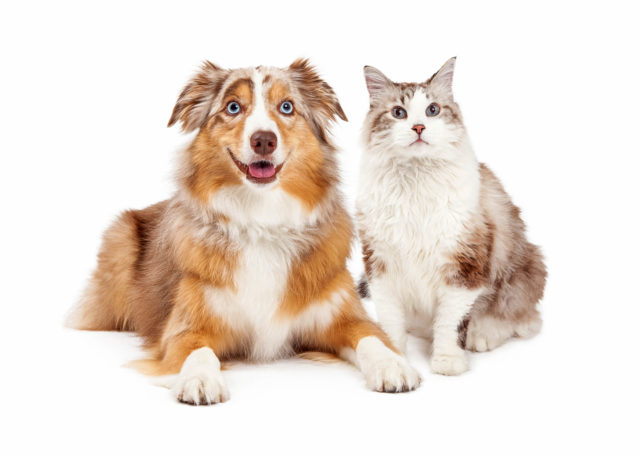We are happy to announce that we will be having “Photos with Santa Paws” on Saturday, Dec. 1, from 10 a.m. to 2 p.m. at the Central Aroostook Humane Society. Bring your pets, bring your kids and get a family photo with your beloved four-legged family member. Donations for the photos will be accepted.
For those of us who have had the pleasure of spending years with our furry friends, I’m sure you have felt the incredible loss when having to say farewell to a beloved pet. Years ago our beautiful German Shepherd “Jessie” turned 14 and we knew it was time. Shepherds are very prone to hip dysplasia and it was painful for us to watch her struggle as time went on. We hope our pets will be a part of our lives for many, many years, but the fact is that the average life expectancy is 10-12 years for dogs and 10-14 years for cats.
Older pets have very specific needs and are particularly susceptible in later years to cancer, arthritis, dental disease and kidney disease, and 80 to 90 percent of senior pets will suffer from arthritis. Supplementing diets with antioxidants, phytonutrients and Omega-3 fatty acids will help support brain function and minimize behavior changes as our pets age.
Pets with behavior changes as a result of aging often wander about confused. Pets that were independent may become clingy. Some pets snap when you try to pet them. Other changes that occur with senior pets include problems with orientation, social interaction, activities and exercise, grooming, housetraining, sleeping and eating.
Clinical nutritionist Dr. Susan Lauten says, “What you could get away with feeding to an adult dog you can’t get away with for a senior. Older dogs need a higher quality protein.”
How can you identify the right foods? First, look for products that contain a statement that the product has been tested, according to the Association of American Feed Control Officials (AAFCO). Next take a look at the quality level. Some of the large manufacturers of pet foods make several levels of food, from very low cost economy foods up to more expensive, high quality foods. In most cases, you will get what you pay for, and the more expensive foods can save you money in the end, Lauten explains, with multiple benefits including a delay in the onset of signs of aging.
In addition to higher quality ingredients, these premium foods often contain additional vitamins and supplements that are beneficial to senior dogs. Poor diets can result in a lack of coat quality, more frequent incidence of skin allergies, gastrointestinal disorders such as diarrhea and vomiting, and a loss of vigor and vitality. The inevitable trips to the vet to treat problems caused by poor nutrition make bargain foods anything but a bargain.
Lastly, and it goes without saying: continue to love and care for your senior dog just as you did when they were young and vital and dropping that ball on your lap every 30 seconds. It’s easy to “forget” they are there, as they snooze away the days in dreamland and don’t react to the jingling keys or household routine like they did in their younger days (and, admit it, when they made you a little bit crazy with their constant demands for attention). Make the effort to keep your sweet old dog engaged in life, interacting with family members and the world around them, and cherish every fleeting moment in their too-short lives.
Won’t you consider a senior dog or cat the next time you are looking to adopt? Stop by the Central Aroostook Humane Society and see the many wonderful pets just waiting for a loving home of their own. We are open Tuesday through Saturday, 10 a.m. to 4 p.m., closing for lunch 12 to 12:30.
Please be responsible: spay and neuter your pets.
“I’m suspicious of people who don’t like dogs but I trust a dog when it doesn’t like a person.” (Unknown)
Gloria J. Towle is the secretary and a member of the Board of Directors of the Central Aroostook Humane Society.








